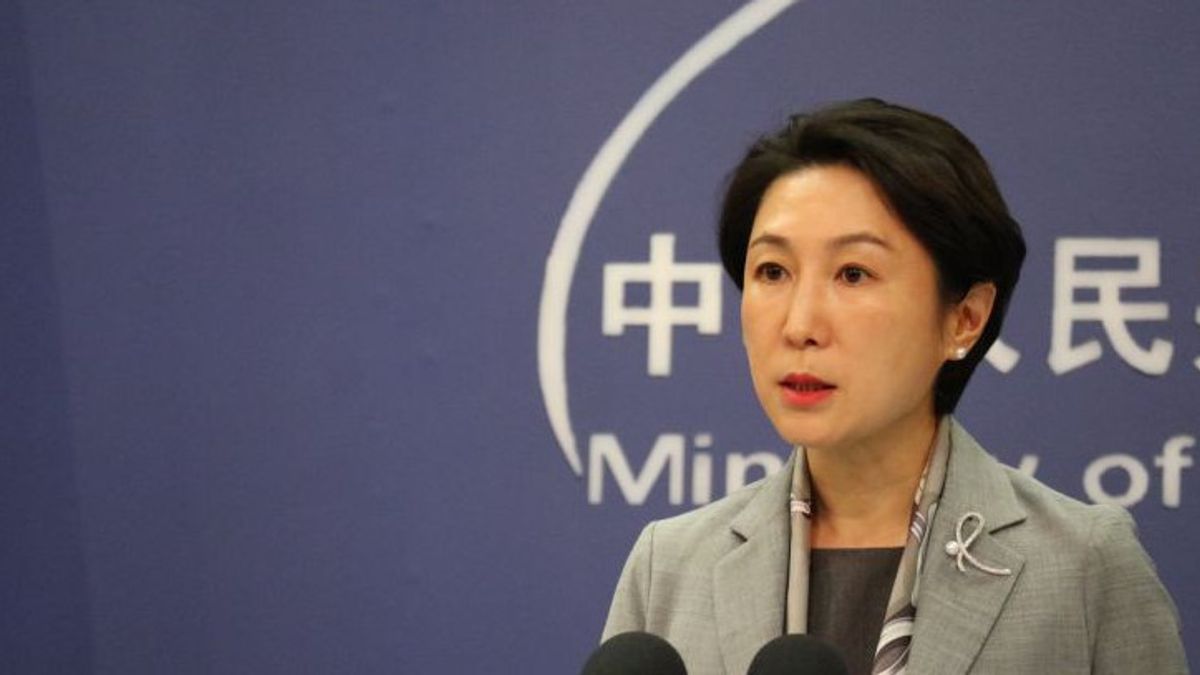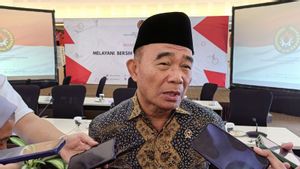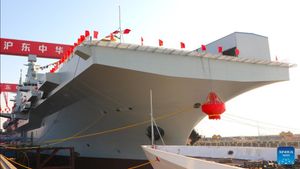JAKARTA - Foreign Ministry spokesman Mao Ning said the Chinese government rejected the "One China, One Taiwan" option and only adhered to the principle of "One China".
"The 2758 resolution adopted in the 26th Session of the UN General Assembly in 1971 made it clear that there were no 'Two Chinas' or 'One China, one Taiwan' in the world. Upholding the principle of 'One China' means maintaining international order," Mao Ning said when delivering a statement to the media in Beijing, China. reported by ANTARA, Tuesday, January 16.
Taiwan's Pascapemilu on Saturday (13/1) won by William Lai Ching-te of the Democratic Progressive Party (DPP), the Chinese Government continues to repeat the principle of "One China" as a guideline for China and Taiwan's relations. William Lai is described as a Taiwanese democracy 'defenseer', but Beijing calls him "dangerous" and becomes one of the " separatist groups" so that it can trigger cross-state conflicts.
"Taiwan's return to China is an important part of the international order formed after World War II. This is clearly regulated in Cairo Declaration and Potsdam Agreement. Challenging the principle of 'One China' means challenging the international order and will face joint opposition from the international community," said Mao Ning.
Mao Ning said there were 182 countries in diplomatic relations with China based on the principle of "One China".
"Taiwan's problems have nothing to do with democracy, but relate to China's sovereignty and territorial integrity. The power of 'Taiwan independence' uses 'democracy' to cover their hidden agenda of dividing the country. Their efforts failed," added Mao Ning.
SEE ALSO:
The Chinese government, said Mao Ning, asked countries that still have official relations with Taiwan to immediately follow the principles of "One China".
"China urges the US to act seriously in accordance with the commitments that have been emphasized many times by US leaders not to support 'Taiwan independence', 'Two China' or 'One China, One Taiwan', handled issues related to Taiwan carefully and stopped sending wrong signals to Taiwan separatist groups," said Mao Ning.
Regarding the US House of Representatives which on Friday (12/1) ratified Taiwan's Non-Discrimination Bill (RUU) which required the Minister of Finance to use American influence on the International Monetary Fund (IMF) to support Taiwan's membership in the IMF, Mao Ning said it meant the US was interfering in China's internal affairs.
"The US is trying to manipulate Taiwan's problems for political purposes to create 'Two China' and 'One China, one Taiwan'. We deeply regret and firmly oppose this, and we have expressed our objections to the US side," Mao Ning said.
Mao Ning said Taiwan has no basis or right to join the United Nations, or any other international organization whose membership is limited to sovereign countries.
'There is only one seat representing China at the United Nations, namely the People's Republic of China. For more than half a century, the 2758 Resolution has been obeyed by the United Nations, special agencies such as the IMF, and other international and regional organizations. All issues regarding Taiwan's participation in international organizational activities must be addressed in accordance with the principles of 'One China', "explained Mao Ning.
In a statement, the US House of Representatives Financial Services Committee stated that Taiwan's 2023 Non-Discrimination Bill sponsored by DPR member Young Kim would require the US to advocate for Taiwan membership in the IMF.
The bill provides Taiwan's argument is the country with the 21st largest economy in the world and its 10th largest trading partner for the US, and although Taiwan is not a member of the IMF, Taiwan is a member of the World Trade Organization, the Asian Development Bank and the Asia-Pacific Economic Cooperation Forum.
Taiwan's experience in developing a dynamic and advanced economy under democratic rule and the rule of law should be an input for the work of international financial institutions, including through Taiwan's increased participation in these institutions.
The bill will now be submitted to the Senate, and if passed in the Senate, it will be sent to President Joe Biden for signing into law.
The English, Chinese, Japanese, Arabic, and French versions are automatically generated by the AI. So there may still be inaccuracies in translating, please always see Indonesian as our main language. (system supported by DigitalSiber.id)

















